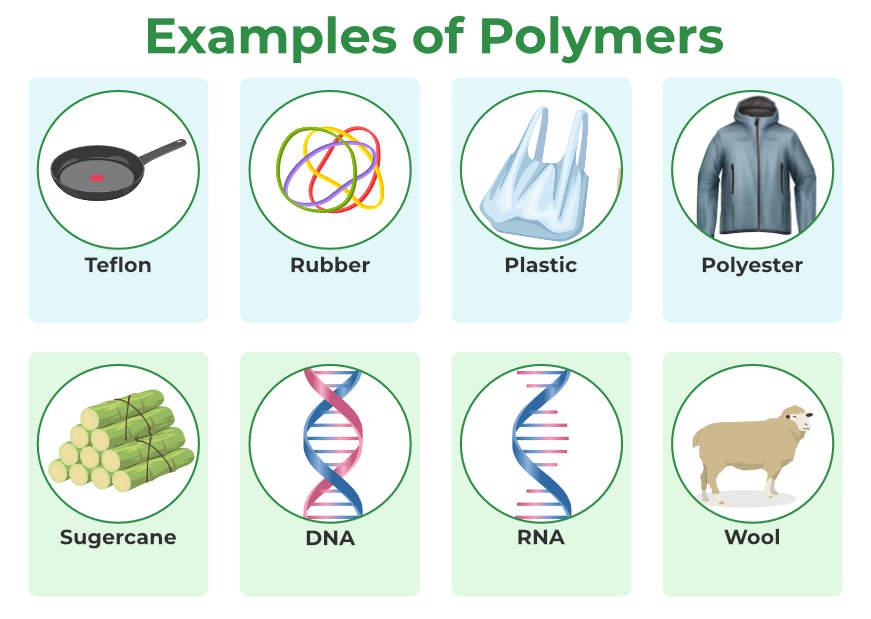Reusing Polymers: Promoting a Circular Economic Climate
Reusing Polymers: Promoting a Circular Economic Climate
Blog Article
Exploring the Varied Applications and Benefits of Polymers in Different Industries
Polymers, with their diverse series of residential or commercial properties and capabilities, have actually come to be vital in numerous sectors, each reaping distinct take advantage of their application. Polymers. From enhancing safety and security and efficiency in the auto field to reinventing clinical gadgets in the healthcare sector, polymers play a pivotal role. Their eco-friendly nature is altering the landscape of sustainability methods. As we dig into the midsts of polymers in electronics, we uncover sophisticated technologies, while their architectural integrity changes the world of building and construction and infrastructure. The pervasive impact of polymers throughout markets is a testimony to their versatility and adaptability, forming the future of many industries.
Automotive Industry Applications
Polymers play an essential role in improving the performance and toughness of different parts within the automobile market. These functional materials are thoroughly utilized in the production of various components, varying from interior parts to under-the-hood applications. One noticeable usage of polymers in the automotive sector remains in the manufacturing of light-weight parts. By changing traditional steel parts with polymer-based options, lorries can achieve better gas performance without endangering on strength or safety.

Medical Care Sector Advantages
In numerous medical care applications, the benefits of utilizing polymers are widely acknowledged for their diverse array of beneficial properties. Polymers play an essential role in the healthcare sector as a result of their flexibility, biocompatibility, and cost-effectiveness. One of the main advantages of polymers in healthcare is their capacity to be customized to specific requirements, such as adaptability, resilience, and biodegradability, making them ideal for a vast array of medical applications.
Polymer-based materials are extensively used in medical tools, such as catheters, implants, prosthetics, and medication distribution systems, as a result of their biocompatibility and ability to imitate all-natural cells. These materials can lower the threat of allergies or rejections, boosting person safety and results. Furthermore, polymers are lightweight, making them appropriate for wearable medical devices and making certain client comfort.
In addition, polymers make it possible for the advancement of ingenious treatment techniques, such as hydrogels for tissue engineering and nanocomposites for targeted drug delivery. Their ease her response of handling and sanitation makes them important for maintaining high criteria of health in health care settings. Generally, the diverse benefits of polymers add dramatically to advancements in clinical modern technology and patient care.
Environmental Advantages of Polymers

Furthermore, polymers can contribute to More about the author energy financial savings due to their light-weight nature. In markets such as transport, light-weight polymer products can aid reduce gas consumption and greenhouse gas exhausts. Furthermore, polymers can allow the development of energy-efficient items such as insulation materials that boost power preservation in buildings.
Furthermore, polymers play an important duty in reducing water pollution. For instance, the use of polymer-based filtering systems can properly get rid of pollutants and contaminants from wastewater, protecting water resources and communities. On the whole, the ecological advantages of polymers make them useful assets in advertising sustainability and environmentally friendly techniques throughout numerous industries.
Polymers in Electronic Devices and Technology
Considering the increasing demand for innovative and sustainable services in contemporary sectors, the integration of advanced polymer modern technologies in the realm of electronic devices and innovation has arised as a critical method for driving effectiveness and performance. Polymers have actually reinvented the electronics sector by allowing the production of lighter, a lot more adaptable, and long lasting electronic tools. From smartphones to clinical gadgets, polymers play an essential function in boosting item layout and capability.
One significant benefit of polymers in electronics is their shielding homes, which assist protect fragile electronic components from environmental aspects and electrical interference. Additionally, polymers are essential in the growth of versatile display screens, wearable modern technology, and published electronics, supplying limitless opportunities for creating wise and interconnected tools.
Additionally, the usage of polymers in digital packaging has resulted in advancements in miniaturization and thermal management, boosting the total efficiency and dependability of electronic systems. As This Site innovation remains to progress, the adaptability and flexibility of polymers will unquestionably drive better technology in the electronics industry, shaping the future of modern technology.
Duty of Polymers in Construction and Facilities
The combination of sophisticated polymer materials in construction and facilities jobs has actually transformed the way frameworks are created and integrated in contemporary times. Polymers use numerous advantages in the construction market due to their versatility, resilience, and cost-effectiveness. One key function of polymers in building is their use in coatings and sealers, giving protection versus environmental aspects such as moisture, UV radiation, and corrosion. Additionally, polymers are used in the production of light-weight and high-strength composite products, boosting the architectural integrity of structures while minimizing general weight.
In addition, polymers play a vital role in lasting construction methods by making it possible for the development of energy-efficient structures. Protecting products made from polymers aid control interior temperature levels, reducing the requirement for home heating and cooling down systems and inevitably decreasing energy intake - Polymers.
Verdict
In conclusion, polymers play an important function in different sectors such as auto, healthcare, ecological, electronic devices, and building and construction. Their versatile buildings make them valuable in creating cutting-edge solutions and products. From enhancing fuel effectiveness in automobiles to improving medical gadgets, polymers provide numerous benefits. In addition, their influence on minimizing waste and promoting sustainability highlights their value in contemporary applications. The widespread use polymers demonstrates their significant contribution to progressing modern technology and boosting high quality of life.
Report this page